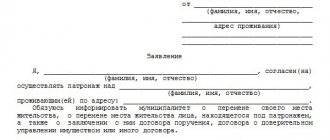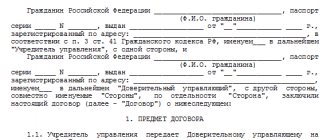Current legislation determines the possibility of obtaining guardianship for elderly people over 80 years of age.
This is due to the fact that citizens of this age, in most cases, are not able to independently serve their needs, and also, they cannot always control their psychophysical actions due to the natural aging of the body and the development of possible pathologies inherent in this age.
Most often, children are granted guardianship over their parents.
The legislative framework
The process of state support for citizens of retirement age is clearly regulated by current regulatory documents at the federal level.
The issue of old age guardianship is regulated by the following legislative acts:
- Civil Procedure Code of the Russian Federation dated November 14, 2002 N 138-FZ (as amended on December 19, 2016) (as amended and supplemented, entered into force on January 1, 2017) - information on guardianship of the elderly should be found in Articles 11, 29, 32, 35, 40, 41, 48;
- Federal Law of December 22, 2014 “On Guardianship and Trusteeship”;
- Federal Law of August 22, 2008 “On Social Services for Elderly and Disabled Citizens.”
The laws of the Russian Federation regulate the registration of guardianship over an elderly person
Guardianship legislation
Guardianship involves two forms of assistance: on an ongoing basis or periodic fulfillment of obligations to care for an elderly citizen.
Guardianship involves the following actions::
- supervision and care;
- carrying out current affairs, daily assistance to the person under guardianship;
- playing the role of a legal representative when coordinating important, legally significant actions, interacting with official bodies and authorities.
Not everyone can become a guardian - there are a number of restrictions and mandatory approval from supervisory authorities. Only after receiving permission from the guardianship authorities does a person acquire a status that gives a number of powers and obligations to the state and the ward himself.
The procedure is strictly regulated and recorded in a number of legislative acts:
- general provisions of civil and family legislation (Civil Code and SK);
- Art. 32, 35 of the Civil Code of the Russian Federation, revealing the essence of guardianship and the features of the status of a person who has received the status of a guardian;
- Law No. 48-FZ, regulating the sequence of actions and conditions for obtaining status.
Download the article. 31-41 “Guardianship and Trusteeship” Civil Code of the Russian Federation (493.9 KiB, 884 hits)
Federal Law No. 48 On guardianship and trusteeship (806.5 KiB, 624 hits)
After completing the procedure, authorized employees of the government agency come to a decision on the need to establish guardianship, based on documentary evidence that the person under guardianship can no longer care for himself or herself. If the verdict is positive, a guardian is appointed within 30 days after filing the appeal.
Basic terms
According to current regulatory documents, the concept of “guardianship” is characterized as one of the forms of protecting the rights of a citizen with the participation of third parties.
Guardians are given the opportunity to represent the rights of the ward, and they are also subject to obligations to provide for the citizen over whom guardianship has been established.
Guardianship can be issued both to a specific individual and to special organizations that provide care for the elderly for a certain monetary reward.
Initially, it is recommended to learn two basic concepts that will make it easier to familiarize yourself with legislative documents.
They are shown in the table below.
| Term | Description |
| Senior citizen | An individual who has reached the age of 80. While the status of “elderly” is assigned to citizens who have reached 60 years of age, and persons over 90 years of age are long-livers |
| Incapacity | Loss of ability to independently serve one's needs and make decisions |
There are two forms of establishing guardianship for citizens over 80 years of age.
These are:
- Full guardianship is established if an elderly citizen has mental disorders. In this state, they are not able to realize what is happening around them, what actions they are doing and what consequences this can lead to. The court deprives such persons of their civil rights by establishing guardianship;
- Patronage is prescribed for citizens who have a serious physical condition, which does not allow them to independently provide for their own life activities.
Before formalizing guardianship of an elderly person, you need to assess your moral, volitional, psychological and physical strength, since caring for an elderly person over 80 years of age requires a significant expenditure of effort and nerves.
Who is under guardianship?
According to current legislation, the appointment of a guardian is possible for persons who have the following disabilities:
- Mental disorders - established only if the elderly person is unable to independently make adequate decisions and control their actions;
- The physical state of health does not allow one to function independently and requires the help of third parties.
The person under guardianship is not deprived of legal capacity. The powers of guardians are determined on the basis of the factor by which social protection is established.
Features of guardianship for the elderly
Civil legislation provides for the following forms of assistance:
- full guardianship over a person who is unable to account for his actions and sensibly assess what is happening, with recognition of his incompetent status in the judiciary;
- patronage, which provides periodic assistance in performing complex everyday tasks, fulfilling the instructions of an elderly citizen who is aware of his actions and is of sound mind.
It should be understood that this act has certain consequences, imposing important obligations and responsibility for the well-being of the ward. You have to take the issue seriously, weighing your capabilities and desires before contacting the official authorities to obtain guardianship.
It is necessary to have sufficient physical strength, be psychologically stable and morally prepared to perform actions within the framework of guardianship.
It is necessary to have sufficient time to provide care, carry out certain tasks, and take care of the ward. If a person does not have such resources, one should find another option for providing assistance to the elderly, for example, entrusting it to another person, organizing care with outside help.
You should evaluate your strength in performing the following duties:
- Providing the needs of the person under care.
- Making regular utility payments.
- Taking care of needs, care.
- Organizing treatment, completing a rehabilitation course, purchasing medications.
- Representation of interests in official authorities, performance of actions for the ward of a personal and property nature.
- Making important decisions for an elderly incapacitated citizen.
The law allows for exemption from work duties; unemployed people can receive guardianship over the elderly, because fulfilling their duties requires a lot of time and takes energy. The condition for registration will be working age, and if necessary, the time of care can be entered in the work book in the form of length of service and counted to the caregiver.
In the absence of official income, the guardian issues the required social payments as compensation for the performance of duties.
When older children are faced with the need to provide care for their parent, they often choose a form of foster care. If the help of outsiders is involved, the action must be agreed upon with close relatives, but permission from them is not required.
Criteria for a guardian of an elderly person over 80 years of age
The right to act as a guardian of a pensioner is granted to relatives or any other citizens. However, it must comply with the requirements defined by current regulatory documents.
In most cases, children establish guardianship over their parents, but only upon reaching the age of eighteen and having full legal capacity.
Each candidate for guardianship must meet the following requirements:
- Have a level of earnings not less than that established by legislative documents, which will need to be officially confirmed;
- Reach the age of majority;
- Have his own living space (even if he plans to live together with the ward);
- Have a certificate of absence of mental disorders;
- Be fully competent;
- Obtain permission for guardianship;
- If the ward has legal capacity, then it will be necessary to obtain his consent to establish guardianship in writing;
- Have an official place of employment;
- No criminal record;
- No alcohol or drug addiction;
- Do not have serious pathologies (malignant tumors of stages 3 and 4, tuberculosis).
In addition, each candidate guardian must undergo special training courses.
When the right to a KVU is lost
Let’s say that there was a person who agreed to care for the old man and received the right to CWU. The courtship process has begun and continues happily. It can be interrupted by newly arising circumstances of the following nature.
- One of the two dies, the caregiver or the ward. This is the natural ending of a relationship.
- The ward is not satisfied with the way he is being cared for, and writes a statement to the guardianship authorities about this. After the inspection, an act is drawn up, and payments to the trustee are stopped.
- The ward is placed in a hospital, municipal or state. Now he will be looked after there, and the KVU will have nothing to pay the former trustee for.
- The trustee retires, or receives unemployed status, or, conversely, gets an official job.
In this case, he is obliged to inform the guardianship authorities and the Pension Fund of the Russian Federation within 5 days that his status has changed and he has lost the right to receive a KVU. If he does not do this, then the illegally obtained money will be collected from him and sent back to the treasury.
How much do carers pay for an elderly person?
The establishment of guardianship is carried out in the form of social protection if the warded citizen is recognized as having lost his legal capacity.
In addition to the fact that guardians are given the right to represent their wards, they can fully receive benefits from the Social Insurance Fund.
You can receive payments from the Social Insurance Fund only if the guardian is legally capable and able to work due to age, but does not carry out official work activities due to caring for the ward.
The period of caring for an elderly person over 80 years of age is fully taken into account when determining the length of service.
For citizens over whom patronage is issued, an additional payment from the Pension Fund of the Russian Federation is assigned in the amount of 1,200 rubles. It is appointed to pay for guardianship services.
And when guardianship is established over an incapacitated elderly person, a payment of 1,200 rubles is assigned, which the guardian receives from the Social Insurance Fund.
After social protection is issued, all rights and interests of an elderly person over 80 years of age are represented by a guardian. Also, he is endowed with the rights to dispose of the funds of his ward, but exclusively in the interests of the latter.
In addition, guardianship involves paying the following expenses of the elderly:
- Payment of housing and utility bills;
- Purchase of food and non-food products, medicines, clothing, etc.
It is important to understand that state law does not specify any payment for guardianship or patronage. However, the ward can sign an agreement on voluntary payment for the services of the guardian.
The ward can sign an agreement on voluntary payment for the services of the guardian.
How to refuse guardianship of an incapacitated person?
The guardian performs his duties on a voluntary basis. In the event of a change in life situation (illness, job loss, divorce) or a bad relationship with the ward, the guardian can issue a refusal. To do this, you need to contact the guardianship department at the location of your personal file. The guardian submits an application in which he requests release from duties.
On the one hand, he is not obliged to explain the reasons for his decision. On the other hand, experts will probably ask him to do this. Since the decision to perform the duties of a guardian is entirely voluntary, no one can force a citizen to maintain his status.
The law does not provide for setting a specific deadline for making a decision. Therefore, after accepting the application, the local government body must urgently issue an act on the release of the guardian.
At the time of submitting the application, the citizen must:
- submit all original documents of the ward;
- submit an order for appointment as a guardian and a certificate;
- submit a report for the past period (but no later than 3 days from the date of receipt of the release order).
From the moment the order is received, mutual rights and obligations between the guardian and the ward cease. An incapacitated citizen comes under the supervision of the district guardianship department.
Responsibilities of a Guardian
Initially, you need to understand that establishing guardianship is voluntary and is a right, not an obligation. No one has the right to force guardianship.
And the registration process itself is quite long, which requires patience and adherence to the rules.
The legislation defines the following obligations that guardians must fulfill:
- Support an elderly person over 80 years of age;
- Pay housing and utility bills for the person under guardianship;
- Caring for the elderly;
- Provide timely treatment for the patient;
- Protect the personal and property rights of the ward;
- Make decisions on behalf of the elderly regarding his life.
Under what conditions is patronage issued?
The Civil Code of the Russian Federation regulates the rules that must be observed when establishing social protection over elderly citizens.
These are:
- An individual who seeks assistance from third parties must not have mental disorders. This is due to the fact that in case of mental disorders, full guardianship is established;
- The candidate for ward and the patron (assistant) himself must give written consent to patronage;
- It is not allowed to establish patronage for social welfare workers who help elderly people over 80 years old at home;
- The right to become an accomplice is granted to a relative or third parties;
- Various agreements are concluded between both parties: agency agreements, assignments, trusts for property management.
The Civil Code of the Russian Federation regulates the rules that must be followed when establishing social protection over elderly citizens
“Am I a guardian or do I have the right”
Since the agreement is signed on a mutual, bilateral basis, the guardian and the ward have rights and responsibilities. But it is better to clearly state them when leaving the custody agreement.
An elderly person who needs guardianship and does not have mental disorders confirmed by the court has the right:
- choose a trustee at your own discretion, but in compliance with Russian legislation;
- terminate the existing contract at any time;
- assign your movable and immovable property to the guardian. If you have partial legal capacity, you must obtain the consent of close relatives.
Types of guardianship
A person to whom the relevant authorities have confirmed one or another type of guardianship has the right:
- manage the property and finances (pension, benefits) of the ward without the consent of employees of the special social service. The main conditions: do this in the interests of the elderly person and in such a way that he knows about it;
- act on behalf of your ward, act as his trusted representative when interacting with various authorities or services;
- live in living space belonging to the citizen under guardianship. And also take him to live with a guardian on his property;
- work. Guardianship does not oblige the guardian to quit his professional activity. As a rule, patronage does not interfere with work responsibilities. And guardianship, in which an elderly person needs round-the-clock assistance, can take up all the time of the guardian. Therefore, each person decides for himself whether he can combine care and work;
- receive remuneration for your work: either in the form of compensation for costs, or in the form of a state benefit. In any case, it is necessary to specify in the contract all possible monetary payments to the guardian for performing certain actions.
How can a pensioner turn 80 apply for guardianship?
Before arranging guardianship for a person of retirement age, it is recommended that you familiarize yourself with the legislative part of this issue, as well as adequately assess your capabilities.
Each candidate must meet a certain list of requirements that are established in federal regulations.
Relationship is not a determining factor in the appointment of guardianship. Complete strangers can also receive this status if they wish.
The main features of guardianship for elderly people over 80 years of age are given below:
- The guardian may be officially unemployed in order to devote full time to the ward. However, the caregiver must be of working age;
- The full period of caring for the elderly is recorded in the official work experience;
- If the guardian is not employed, then he receives payments from the Social Insurance Fund for caring for the elderly.
List of documents
Each candidate for guardianship will need to fill out an application in a certain form - download link.
Then submit it to the local Department of Social Protection of the Population with the following list of papers:
- Applicant's passport (original and photocopy);
- Bilateral agreement;
- Certificates about the health status of each of the parties to the agreement (guardian and ward);
- A written description from the place of employment of the candidate for guardianship;
- Work book (original and photocopy);
- An extract from the house register, which confirms ownership of the living space;
- Certificate of registration at the place of residence;
- Conclusion based on the results of an examination of the guardian’s place of residence (two copies).
Documents for guardianship
How to make an application?
The application form must be filled out directly by the candidate for trustee.
The following information must be included in the document:
- Full name of the guardian;
- Passport details;
- Time limits for establishing guardianship;
- Conditions of detention of the ward;
- List of attached documents.
Application for guardianship
Registration of patronage is carried out according to a similar scheme, and the existence of an agreement with the conditions for the provision of such a service is additionally prescribed.
Application for establishment of patronage
Agreement on trust management of property of a citizen under patronage
Procedure for registering guardianship
Before becoming a guardian of an elderly person, it is necessary to confirm his incapacity. According to Art. 29 of the Civil Code, such recognition is carried out in court. As established by Art. 281 of the Code of Civil Procedure, a case for recognition of incapacity can be initiated at the request of relatives and family members, guardianship authorities, medical organizations, social service organizations. As part of the preparation for the hearing, the court orders a forensic psychiatric examination, based on the results of which the citizen may be declared legally incompetent. Guardianship over him can be made only if the court makes a positive decision.
But recognition of incapacity is only the beginning of the procedure for establishing guardianship. Within its framework, candidates will have to go through a full range of procedures established by law, including collecting and submitting documents to the competent authorities, undergoing a check of living conditions, undergoing special training and concluding an agreement. Each of these stages has its own characteristics, despite the fact that it is regulated by a single legal act - Decree of the Government of the Russian Federation dated November 17, 2010 No. 927. In the context of this, we consider it advisable to consider each stage in more detail. Let's start with where and how to arrange guardianship of a pensioner.
Where to contact
The selection, registration and training of citizens - candidates for performing guardianship functions - is carried out in accordance with the Rules for the selection, registration and training of citizens, approved by Decree of the Government of the Russian Federation dated November 17, 2010 No. 927.
According to clause 2 of these Rules, the selection, registration and preparation of persons applying for the performance of guardianship functions is carried out by the guardianship and trusteeship authorities. But this is not the only place to go to formalize guardianship of an elderly person: the selection and preparation of citizens can also be carried out by medical and social organizations vested with the powers of guardianship authorities.
As part of the application, the citizen must express a desire to become the guardian of a particular pensioner. As a general rule, it can be expressed by consent or by submitting a statement. However, expressing a desire is not all that is needed to formalize guardianship of a pensioner. In some cases, you will even have to obtain the consent of relatives.
Consent of relatives
So, according to the general rule established by Art. 36 of the Civil Code, guardians and their wards live together. Anything else is possible only with the permission of the guardianship authorities and only on condition that this does not have negative consequences in the exercise of the rights of the elderly person.
According to the above Rules, one of the conditions for such cohabitation is the consent of family members and children over 10 years of age to allow the elderly ward to live with the family. It is given in writing signed by all residents. If the guardian has decided to live separately from the pensioner under his guardianship, such consent from relatives will not be required.
Package of documents
When submitting an application to the guardianship authorities, the potential guardian is required to provide a package of documents. What documents are needed for guardianship of an elderly person is written in paragraph 4 of the above Rules for the selection and registration of citizens.
In addition to the application, candidates submit:
- a certificate from the place of employment indicating the position and salary;
- an extract from the house register;
- medical certificate of health;
- a copy of the marriage certificate;
- police certificate;
- written consent to stay from family members;
- a certificate from the housing office confirming the compliance of the residential premises with technical and sanitary standards;
- document confirming completion of training;
- autobiography.
When submitting an application for guardianship of an elderly person in person, the applicant must present a passport. Most documents can be submitted within a year of their issue, except for a medical certificate of health, which is valid for 3 months.
Further procedures and deadlines for completing them
Within 7 days from the date of submission of documents, competent officials must conduct an examination of the living conditions of the candidate for guardianship. As a result of such an examination, living conditions, personal qualities, motives that guided the applicant, his abilities and other factors are assessed.
The results of the examination are documented in a special act, which is issued within 3 days. Based on the act, within 15 days from the date of filing the application and other papers, the guardianship authority makes a decision on the appointment of a guardian or on the refusal to appoint him.
The act of appointment of a guardian is sent to the applicant within 3 days. Based on his previously submitted application for paid guardianship, an agreement is concluded with him in accordance with the Rules for concluding an agreement, approved by Decree of the Government of the Russian Federation No. 927.
The described procedure is provided for guardianship of all categories of adults. The opinion that the law provides for a simplified procedure for registering guardianship over an elderly relative over 80 years of age, which does not require recognition of his incapacity, is erroneous. However, some features of guardianship for such elderly persons are still provided for.
Who controls the fulfillment of the conditions?
State guardianship authorities undertake to monitor the activities of the guardian in relation to his ward.
It is within the competence of government agency employees to visit and talk with the pensioner, as well as request reporting on the funds spent.
According to current legislation, a guardian does not have the right to use the ward’s financial savings for personal purposes. If misconduct is discovered, the guardian is deprived of his status without the possibility of ever becoming a trustee.










